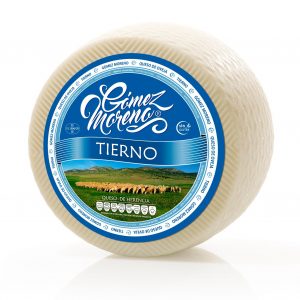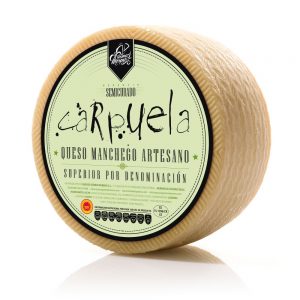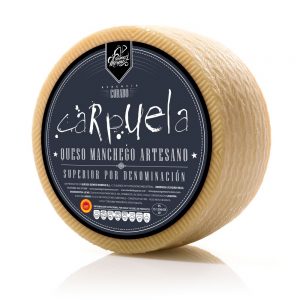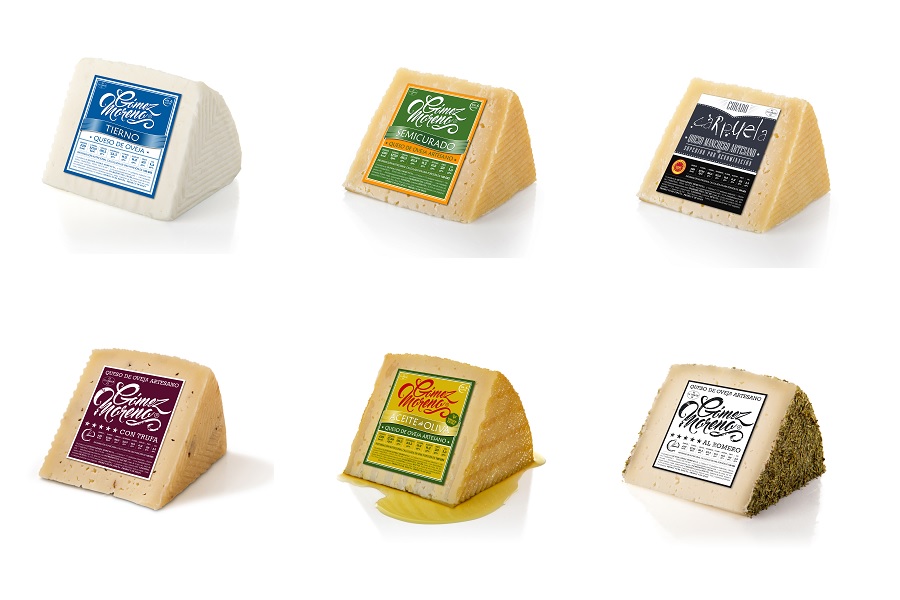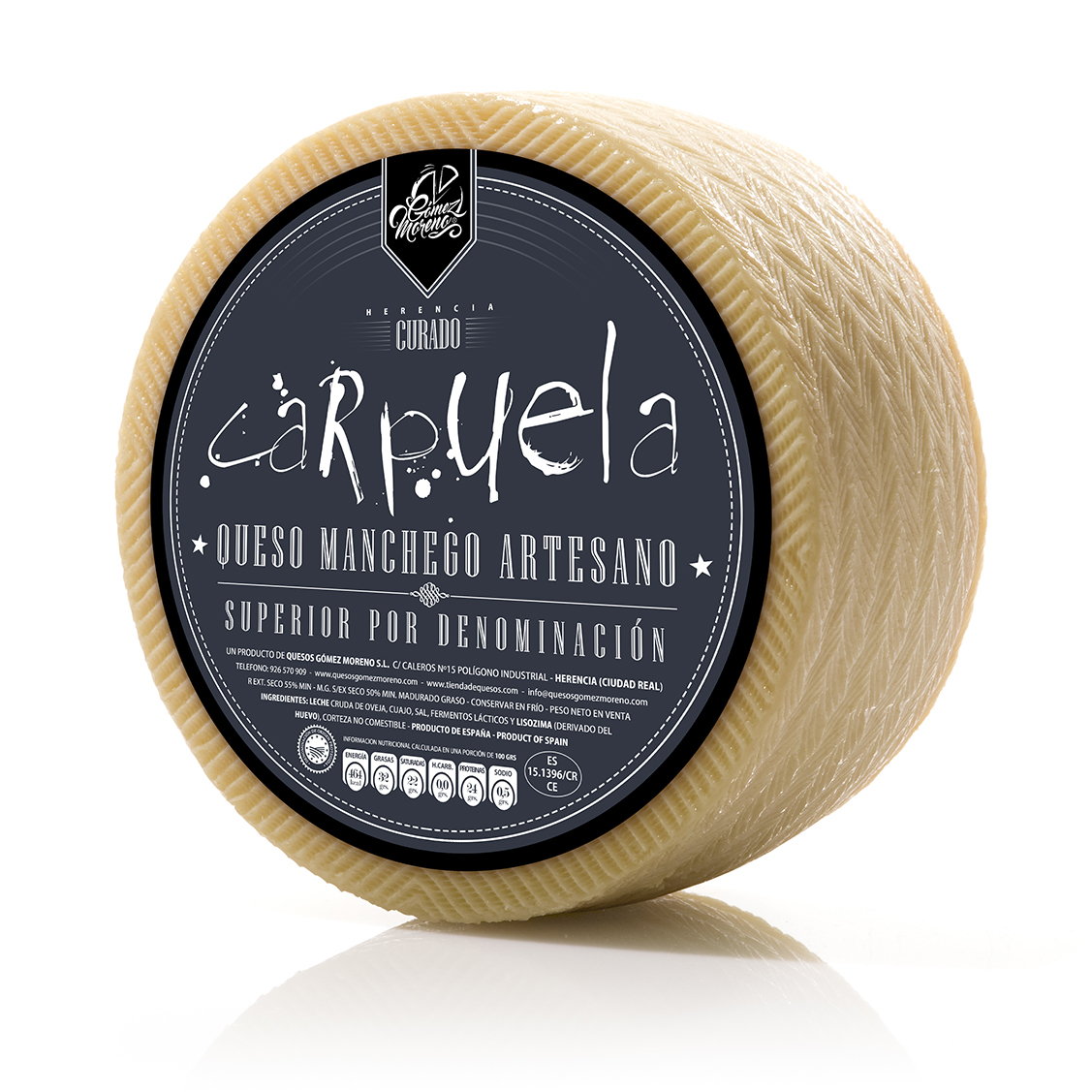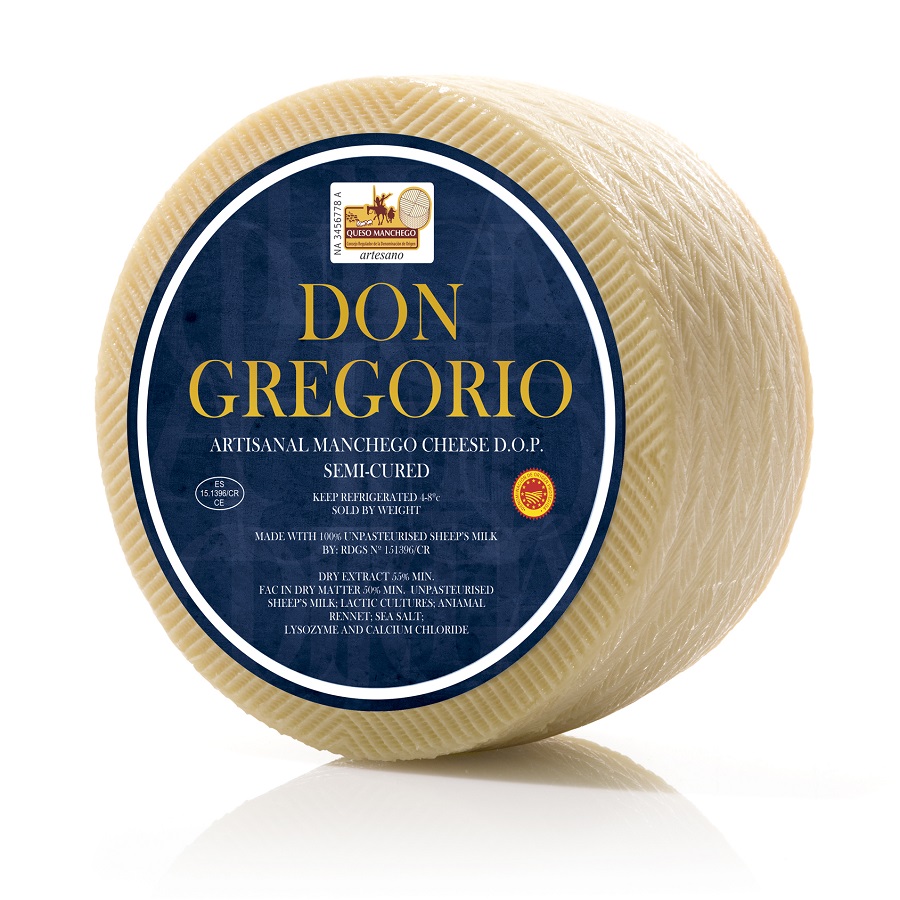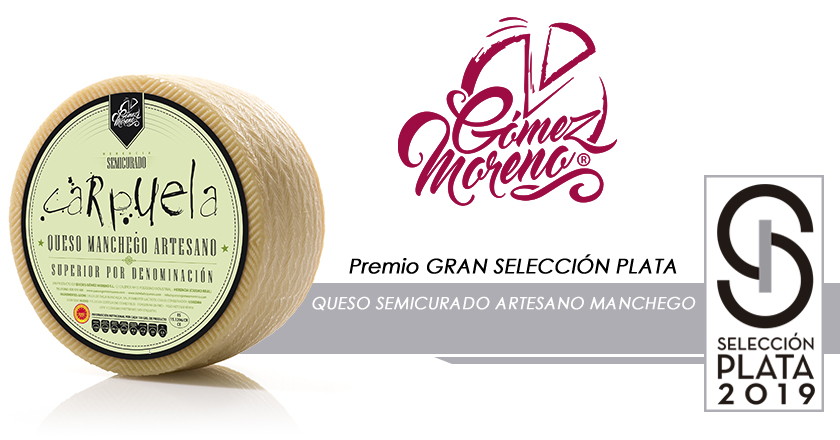Manchego cheese is a highly versatile food, as we can include it in our diet in various ways and at any time of the day. We can enjoy it on toast for breakfast, as a tapa or appetizer before lunch, in sauces or integrated into our main meals, as dessert or even as a pre-dessert, like the French do.
We must remember that cheese is a star food in our gastronomy, and it’s essential in every Spaniard’s diet. In our case, we produce Manchego cheeses from sheep’s milk, known for being intense, flavorful, aromatic, and creamy.
What are the benefits of Manchego sheep cheese?
Manchego sheep cheese is rich in macronutrients—it shares the same nutritional qualities as milk but is consumed in small portions packed with concentrated nutrients, meaning we get more nutrition with less food.
It provides a balanced amount of energy and protein, as it’s rich in fat. Thanks to the fatty acids it contains (omega-3 and linoleic acid), sheep cheese supports our cardiovascular, immune, and nervous systems. It also has anti-cancer properties.
It’s a great source of amino acids, which play a crucial role in our metabolism and are essential for any vital activity.
But is Manchego sheep cheese good for our health?
The answer is YES.
The “realfooding” movement, which eliminates all ultra-processed foods from the diet (industrial pastries, candy, precooked meals, additives like E-621, etc.), promotes eating real food—in other words, traditional foods like vegetables, meat, fish, cheese, legumes, etc. Why mention this?
Why mention this?
Because Manchego cheese is undoubtedly real food. For cheese to be considered real food, it must contain only four ingredients: milk, salt, lactic ferments, and rennet. But are all cheeses suitable for a healthy diet? The answer is also yes.
We all know that fresh cheese is the healthiest due to its low fat content, but what about cured cheese? The more aged the cheese, the more milk is used in its production, and therefore, the more fat it contains. Cured cheeses are very concentrated, as they lose a lot of whey during production. So, the more aged the cheese, the higher the fat content
The fat in cheese is dairy fat, which is not harmful to health—it simply means the cheese provides more energy. It’s true that these types of cheese are not recommended for people trying to lose weight, but that doesn’t make them unhealthy.
NUTRITIONAL INFORMATION PER 100 G OF OUR SOFT CHEESE
ENERGY VALUE: 1518Kjul / 366Kcal
FATS: 29.5 g
of which SATURATED: 20.5 g
CARBOHYDRATES: 2.1 g
of which SUGARS <0.5 g
PROTEINS: 23.0 g
SALT: 1.5 g
INGREDIENTS (SOFT CHEESE): Pasteurized sheep’s milk (origin: Spain), salt, calcium chloride*, lactic ferments, and rennet.
*Calcium chloride is a salt used to reinforce calcium in pasteurized milk.
NUTRITIONAL INFORMATION PER 100 G OF OUR SEMI-CURED CHEESE
ENERGY VALUE: 2027Kjul / 489Kcal
FATS: 41.0 g
of which SATURATED: 29.5 g
CARBOHYDRATES: 1.0 g
of which SUGARS <0.5 g
PROTEINS: 29.0 g
SALT: 1.65 g
INGREDIENTS (SEMI-CURED CHEESE): Raw Manchega sheep’s milk, salt, lactic ferments, and rennet
NUTRITIONAL INFORMATION PER 100 G OF OUR CURED CHEESE
ENERGY VALUE: 2027Kjul / 489Kcal
FATS: 41.0 g
of which SATURATED: 29.5 g
CARBOHYDRATES: 1.0 g
of which SUGARS <0.5 g
PROTEINS: 29.0 g
SALT: 1.65 g
INGREDIENTS (CURED CHEESE): Raw Manchega sheep’s milk, salt, lactic ferments, and rennet.
Specific Properties of Manchego Sheep Cheese:
Lactose: Contains less lactose than cheeses made with other types of milk, making it easier to digest and lighter for people with intolerance.
Vitamins A and B: Help the body absorb calcium. It is rich in B-group vitamins.
Proteins: Cheese maturation increases protein availability. It also contains calcium and potassium. A 42 g serving of soft cheese provides around 300 mg of calcium—the same as a cup of milk.
Cheese Myths:
All cheese fats are saturated. FALSE. Most of the fats in cheese are not saturated and serve as energy storage sources.
Cheese contains more protein than some meats. TRUE. It’s commonly believed that meat has the highest protein content, but sheep’s cheese has been shown to contain even more.
In conclusion, sheep cheese is a real food that offers multiple benefits. It’s a staple in our daily life that we never tire of. If you want to try new cheeses, varieties, or flavors, visit our online store where you’ll find a wide range of products.
And finally, we recommend consuming our cheeses at room temperature. Take them out of the fridge about 20 to 30 minutes before serving to fully appreciate their flavor and nuances.



